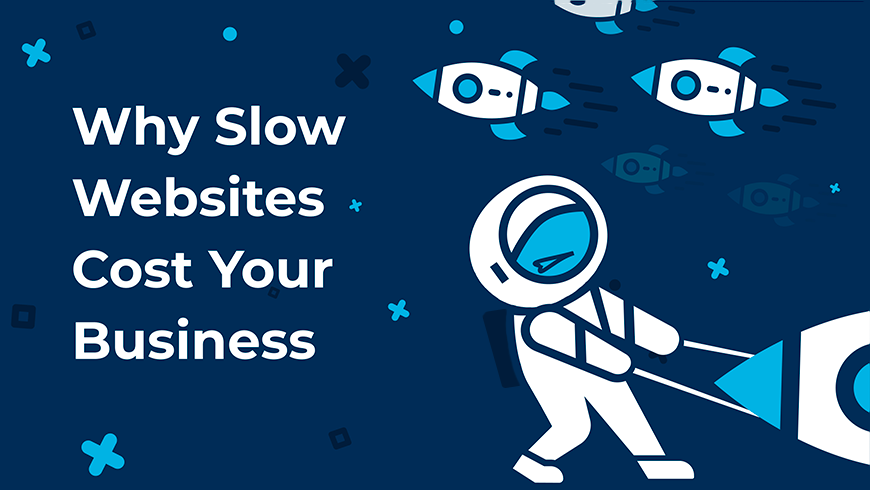Posted on
October 18, 2019
Read time
 4 mins read
4 mins read
Setting up a website for your business is quite crucial these days. And this goes for a brick and mortar company too — regardless your business operates online or offline. The thing is: Without a solid website, you are missing a huge chunk of potential leads and customers that your business can have.
However, your website won’t do you much good if it’s too slow to load. If you’re going to invest the energy and effort into building one, make sure that it loads quickly across all devices. With that being said, you’ll want to pay particular attention to loading speed on mobile technology, as consumers now use their phones and tablets far more often than regular computers.
In this article, we will fill you in on some of the key reasons why it’s so important to make sure that your website is up to speed.
Slow Websites Have Drastically Lower Conversion Rates
In the age of instant gratification, the large majority of consumers will go back to the search results and choose another website to view rather than waiting for a slow one to finish loading. When we say slow, we mean anything that takes more than 3 seconds. After the 3 second mark, 40% of searchers will leave the website instead of waiting for it to finish.
It might sound crazy, but the statistics speak for themselves. Even a 1-second delay in load time can reduce conversion potential by as much as 7%.
It’ll Have a Negative Impact on Your Search Ratings
Google is constantly updating its algorithms as a means of keeping people from “hacking” their way on the top of the search engine results pages. Back in the year 2010, Google announced that it would be adding page load time to the algorithm used for determining page ranking. At first, this was applied to load time on desktops, but now that mobile devices are the primary way of searching, load time all across the board makes a difference.
Since the initial introduction of this update, it has become clear that loading time plays a big factor in website ranking. However, despite the fact that it has become common knowledge, most websites still take between 6-13 seconds to load.
It’s not likely that you’ll actually come across any of the websites loading slowly, because Google buries them deep down the results pages. If you don’t want your website to get lost in Google’s depths, and want a fighting chance at ranking well, you’ll need to make loading speed a priority.
How to Boost Conversion Rate with Web Design?
Fewer Returning Website Visitors
This may not seem like a big deal at first glance, but if you run an online store, the amount of repeat traffic that your website brings in can make or break your success.
Even if you do manage to keep customers on your slow loading website, they will be 79% less likely to return for another purchase than they would be if your website loaded quickly.
It’s also important to take into consideration that “one and done” customers are not very likely to recommend your products to other people. Repeat customers are more apt to leave positive reviews and share your business within their social circles. Social proof of this nature is an essential component of building up your business, and it also works to improve your ranking on google.
With that information in mind, it’s clear to see how a website that loads quickly can go a long way when it comes to establishing brand loyalty.
So, Now What?
If you’ve run tests on your website and have found that your loading time is exceeding the 3-second mark, it’s likely in your best interest to make some changes. At the very least, you should optimize your website for improved loading speed on mobile devices, although it would be best to improve your page speed all across the board.
If you have some know-how, you might want to look into the open-source PageSpeed Module built by Google for websites using Apache & Nginx Servers.
Here are a few other simple steps that you can take as well:
- Upgrade your hosting
- Limit HTTP requests
- Combine files
- Defer your larger files (like JavaScript)
- Reduce your server response time
If you had someone else build your website for you, and aren’t really sure how to go about reworking things, your best bet is to reach out to a team of SEO professionals to help get you running at the speed you need.








